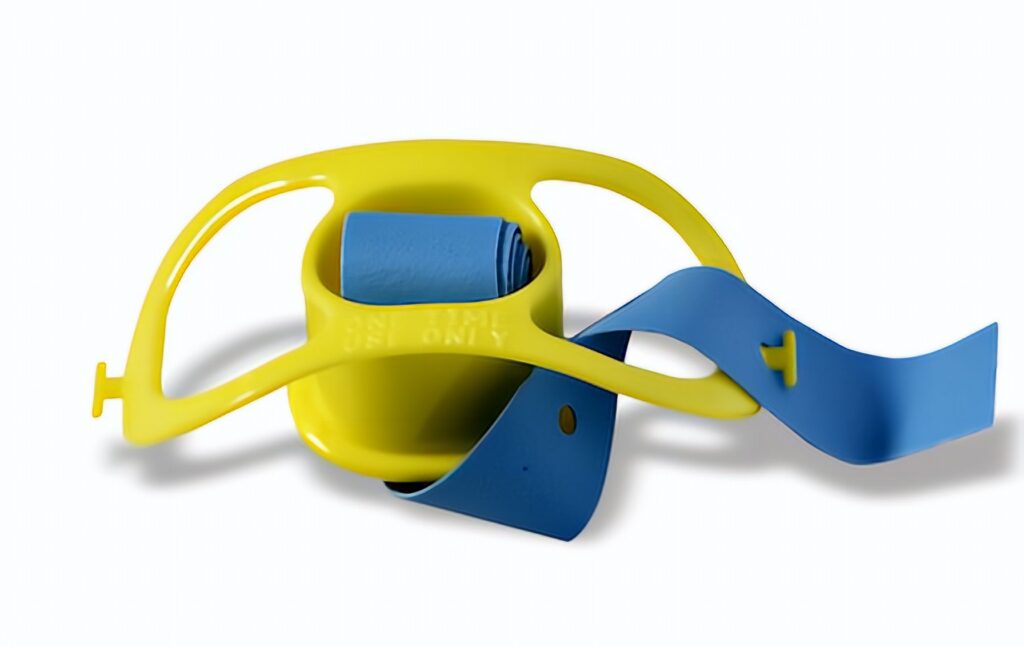Endoscopy Supplies
Gastroenterology
- Niti-S™ Self-Expandable Metal Stent
- RFA Treatment
- Solar™ GI High-Resolution Manometry Available In Canada
- Solid State Catheters Available in Canada
Available In The USA
Endoscopy Supplies Bite Blocks Canada
Instrumed Surgical™ Bite Blocks

Enhancing Endoscopy Procedures: A Comprehensive Review of the Importance and Benefits of Using Bite Blocks
Explore the crucial role of bite blocks in enhancing endoscopy procedures with this comprehensive review. From highlighting their significance to comparing different types available, this informative article is a must-read for medical professionals seeking to prioritize patient comfort and safety during endoscopy procedures. Gain valuable insights to make informed decisions when selecting the most suitable bite blocks for optimal patient care.

Understanding the Significance of Bite Blocks in Endoscopy Procedures
Endoscopy procedures are essential for diagnosing and treating various gastrointestinal conditions. However, these procedures can be uncomfortable for patients and pose risks such as patient movement and potential damage to the endoscope. This is where the significance of bite blocks comes into play.
Importance of Patient Comfort and Safety
Patient comfort is a crucial aspect of any medical procedure. Discomfort during endoscopy can lead to patient movement, which may interfere with the procedure and increase the risk of complications. Bite blocks play a vital role in ensuring patient comfort by providing a stable surface for the patient to bite down on, reducing the likelihood of movement and enhancing the overall experience.
Furthermore, ensuring patient safety is paramount during endoscopy procedures. By using endoscopic bite blocks, medical professionals can minimize the risk of injury to the patient’s oral cavity and teeth, as well as protect the endoscope from potential damage caused by sudden movements.
Exploring Different Types of Bite Blocks
There are several types of bite blocks available, each with its own unique characteristics and benefits. Understanding the differences between these types is essential for selecting the most suitable option for endoscopy procedures.

Soft Bite Blocks
Soft bite blocks are made from materials such as foam or rubber, providing a cushioned surface for the patient to bite down on. These bite blocks are designed to offer comfort while effectively minimizing patient movement during the procedure.
Silicone Bite Blocks
Silicone bite blocks are known for their flexibility and durability. They are designed to provide a comfortable yet firm surface for the patient to bite down on, ensuring stability and minimizing the risk of movement.
Disposable Bite Blocks
Disposable bite blocks are single-use devices that offer convenience and hygiene benefits. These bite blocks are designed for one-time use, reducing the risk of cross-contamination and ensuring optimal safety for patients.
Comparing the Benefits of Various Bite Blocks
When considering the use of bite blocks for endoscopy procedures, it is important to compare the benefits offered by different types.
Comfort for the Patient
All types of bite blocks aim to enhance patient comfort during endoscopy procedures. Soft and silicone bite blocks provide a cushioned yet stable surface for the patient to bite down on, while disposable bite blocks offer the added benefit of being free from any previous use, ensuring optimal comfort for the patient.
Ease of Use for Medical Professionals
Bite blocks should not only benefit the patient but also facilitate the ease of the procedure for medical professionals. Silicone bite blocks, for example, offer a balance of flexibility and stability, making them easy to position and use during the procedure. Disposable bite blocks, on the other hand, eliminate the need for cleaning and sterilization, streamlining the process for medical professionals.
Hygiene and Safety Considerations
Disposable bite blocks stand out in terms of hygiene and safety considerations. By using single-use bite blocks, the risk of cross-contamination is significantly reduced, contributing to a safer environment for both patients and medical professionals.

Selecting the Most Suitable Bite Blocks for Optimal Patient Care
When choosing bite blocks for endoscopy procedures, several factors should be taken into consideration to ensure optimal patient care.
Factors to Consider When Choosing Bite Blocks
- Patient comfort and stability
- Ease of use for medical professionals
- Hygiene and safety considerations
- Compatibility with endoscope equipment
Recommendations for Best Practices in Using Bite Blocks During Endoscopy Procedures
- Regularly assess and compare different types of bite blocks available in the market
- Consider the specific needs of each patient and the requirements of the endoscopy procedure
- Prioritize patient comfort and safety when selecting bite blocks
- Follow manufacturer guidelines for the proper use and disposal of bite blocks
In conclusion, the use of bite blocks in endoscopy procedures is crucial for prioritizing patient comfort and safety, minimizing patient movement, and protecting the endoscope from potential damage. By exploring the different types of bite blocks available, comparing their benefits, and considering key factors when selecting the most suitable option, medical professionals can ensure optimal patient care during endoscopy procedures.
